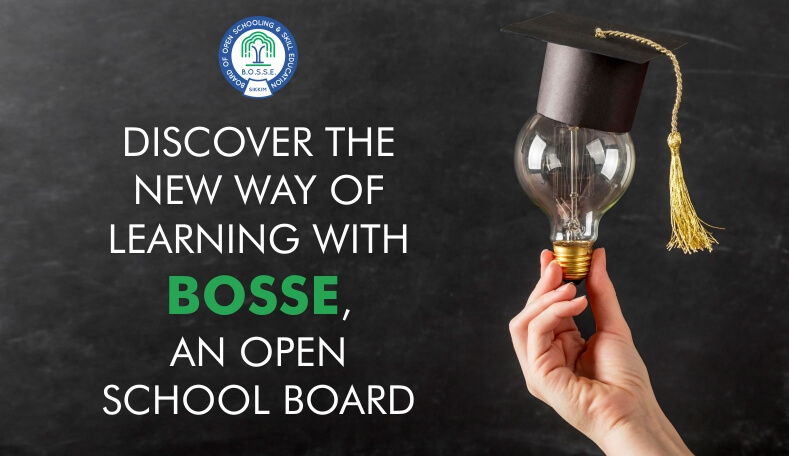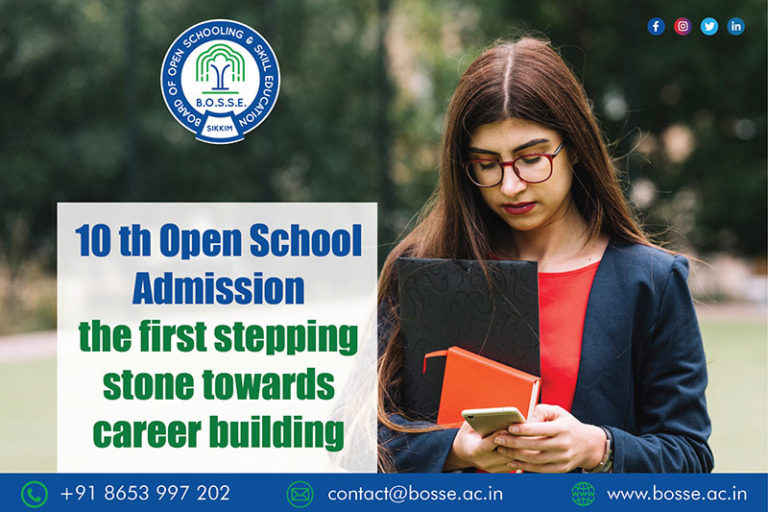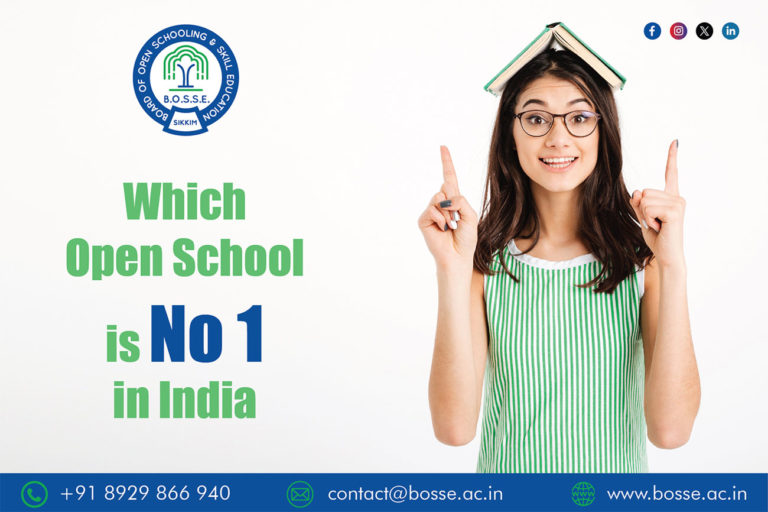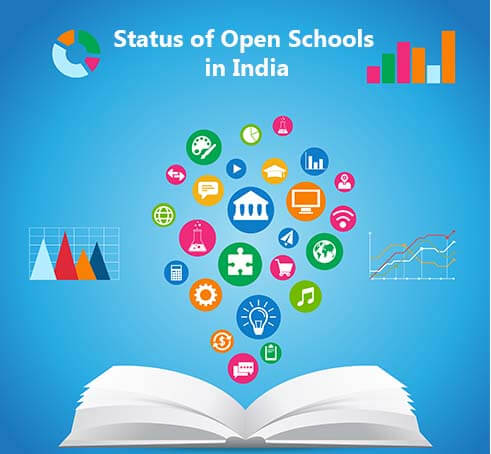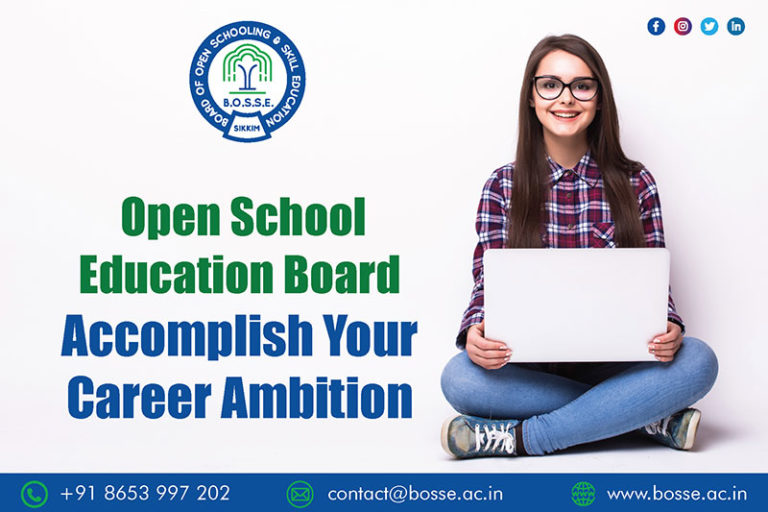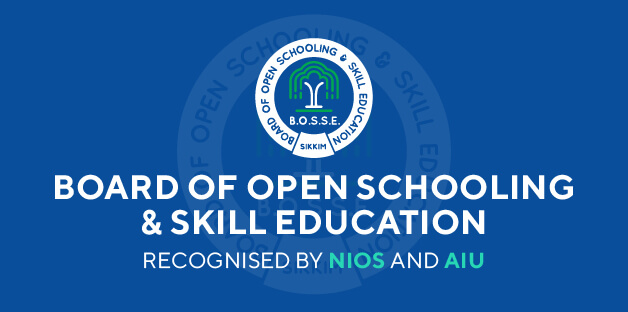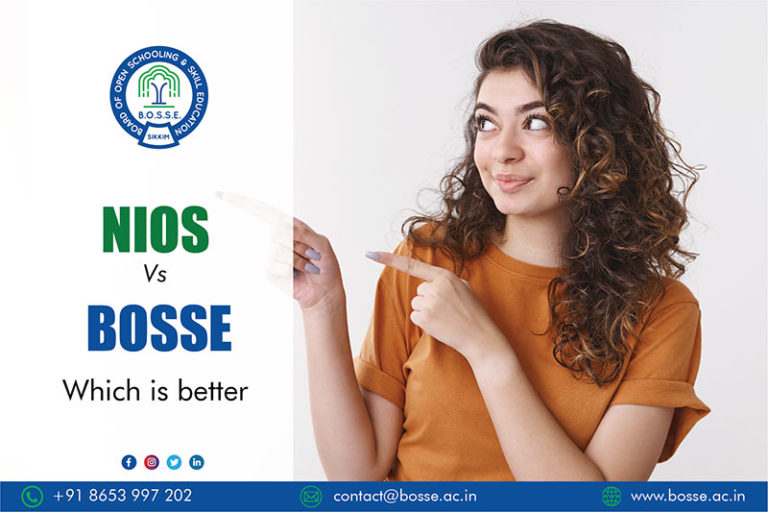Discover a New Way of Learning with BOSSE, a Board of Open Schooling
Open schooling is a catch-all word for any educational or training program that systematically aims to remove barriers to learning, whether those constraints be based on age, time, location, or geography. BOSSE, a Board of Open Schooling is a recognized educational board that provides secondary, senior secondary, skill, and vocational education to a diverse group of students, including school dropouts, failed, differently or specially enabled students, and underprivileged sections of society, such as rural people, urban poor, partially employed, unemployed, females, and minority groups. BOSSE provides flexible and continuing education through a distance and open learning education system. This enables students to obtain self-paced education over a much longer period than is possible under the traditional method. Students have ownership over what they learn when they learn it, how they learn it, how quickly they learn it, who helps them learn it, and when their learning is accessed.
When it comes to education, many students in India choose to walk off the main path for a variety of reasons. In India, open school boards provide students with the flexibility and freedom to learn at their speed. Youngsters who are homeschooled and want to take milestone exams to go into graduate or diploma programs, students with special needs, individuals who want to pursue professional sports or other vocations, children who can’t cope with a second language, and those who don’t want to go through the rigors of a traditional academic curriculum can all benefit from the open schooling system.
With these considerations in mind, the CBSE-sponsored open school project in 1979 marked the start of open schooling in India. The Ministry of Human Resources and Development formed the National Open School (NOS) as an autonomous entity to handle the project a decade later, in 1989. In 2002, the National Open School has renamed the National Institute of Open Schooling (NIOS). Additionally, under Act No. 14 of 2020, NIOS formed BOSSE and added it to its list of open schools to make universal education, as well as skill and vocational training, more available to all students up to the pre-degree level. The board’s principal purpose is to provide education to society’s underprivileged sectors, which is desired due to its inherent connection to the human psyche and psychological development. 12th Open School Admission is open to all; interested applicants should apply soon for better career prospects.
BOSSE, however, offers an open school system that is free of time-bound programs and regular school attendance. It is specifically developed for those who are unable to attend regular schools for a variety of reasons and now wish to complete their 10th or 12th distance regardless of age or for some other reason are unable to enroll in regular school programs. This board welcomes all students and assists them in pursuing job-related skills and vocational education courses to obtain a suitable job or start a business. Candidates who do not pass any of the exams can retake them every six months. They will have 9 chances to pass all 5 subjects and earn the certificate over 5 years. Candidates can apply for admission online or visit one of the study centers to enroll. When enrolling, all applicants can take advantage of the Transfer of Credits, if applicable.
BOSSE Curriculum Pattern for Board Exam
Through open school and distance education, BOSSE follows a learner-centric approach to teaching. Students can mix and match subjects to meet their individual needs and objectives. They can learn at their own pace using self-instructional material that has been carefully tailored for them. They have the option of taking each topic exam one at a time, depending on their preparation. On vacations and weekends, BOSSE’s open learning is augmented with audio-video and face-to-face contact lessons held at the study centers. The learner’s registration is valid for five years. During the five-year admission period at BOSSE, a Board of Open Schooling, students can change subjects or take on extra subjects but the total number of subjects does not exceed seven.


